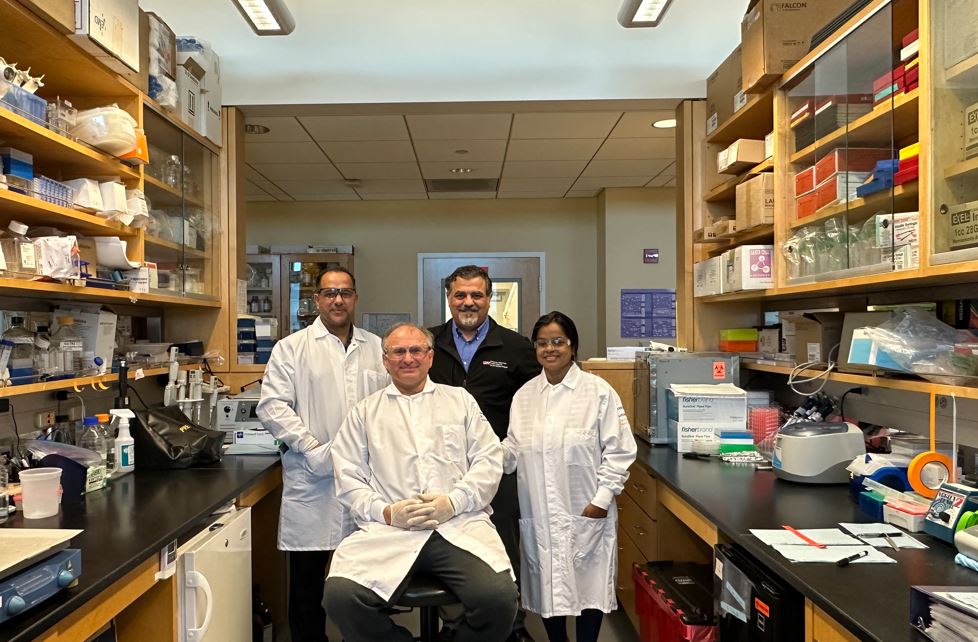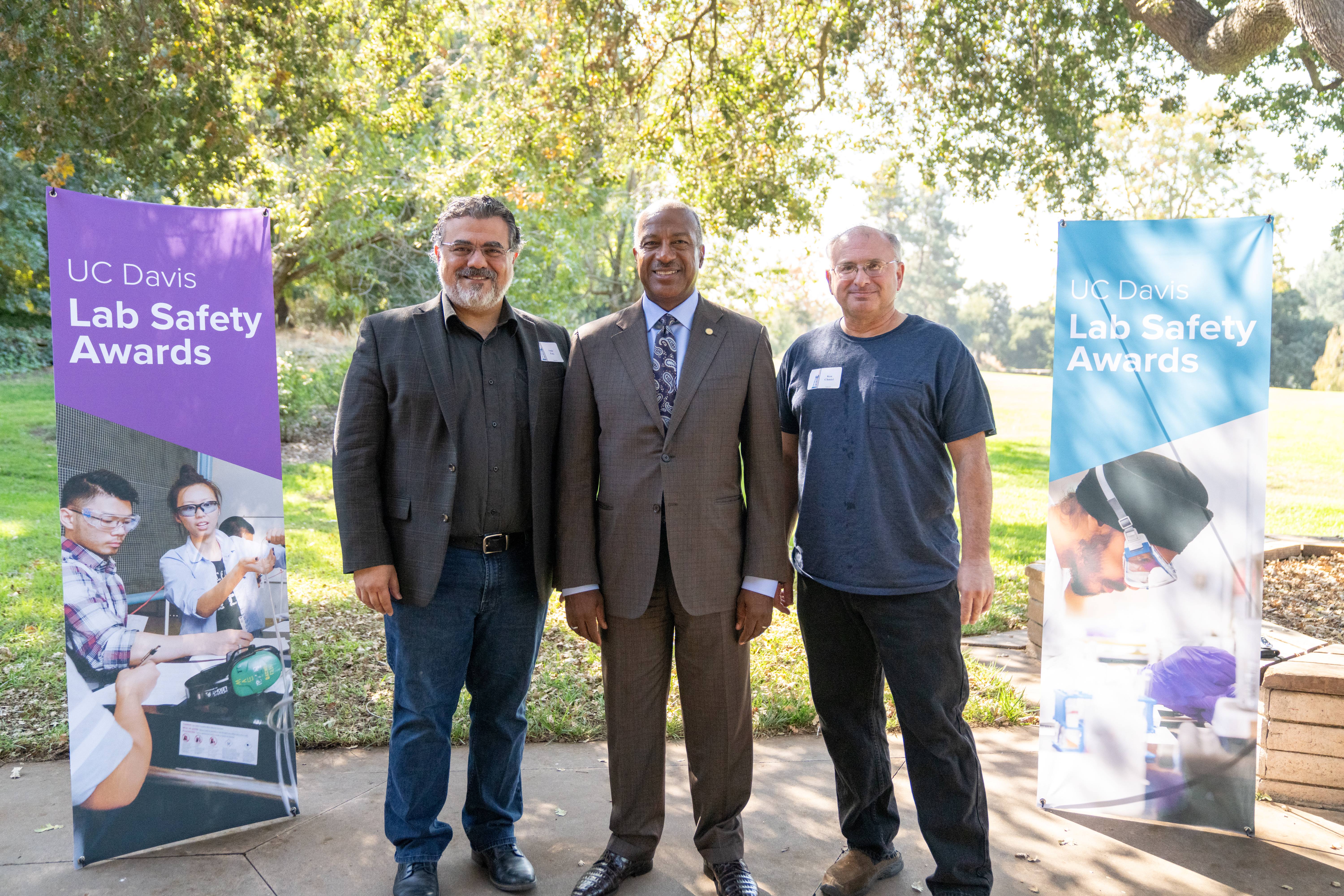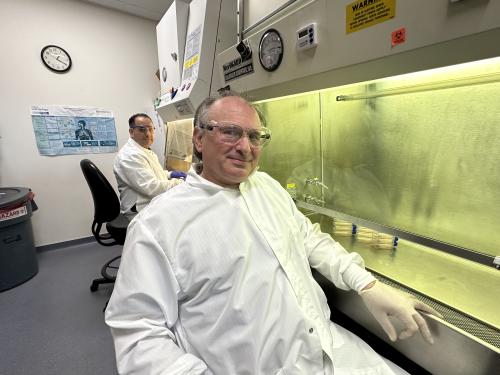From the School of Medicine, this year's winner is Dr. Amir Zeki.
The Zeki Lab focuses on novel drug development for the treatment of lung and airway diseases, aiming to bring effective treatments to patients with asthma and chronic obstructive pulmonary disease (COPD). Because certain orally-delivered drug therapeutics may not be able to fully penetrate tissue in parts of the lungs and airway, Zeki’s Lab is dedicated to finding new methods to help treat these common conditions.

The Zeki Lab is primarily a cell and tissue culture laboratory with additional use of live animal lung tissues and disease models. Thus, the intrinsic nature of the lab operations requires its members to prioritize biohazard safety.
“We institute a comprehensive safety training presentation for new employees, preparing them for potential hazards that may exist in the lab,” said Ken Chmiel, laboratory manager. “Although we cover all aspects of regulatory standards and their attendant principles, we believe that real-life examples are most memorable.”

At the Zeki Lab, the psychology of the employee, their attitude and attentiveness, and a real understanding of such potential hazards is essential to striking the right balance between safety as just "a set of rules" versus experiencing it as an effective and vital safety program. The Zeki Lab tailors training for each of the members, with the overall goal of helping them think differently and consistently about safety.
We cultivate and promote safety awareness with entertaining but practical examples that illustrate what can happen in the lab work environment,” said Chmiel.
“From many years of working within a research lab, I invoke anecdotal stories about how injuries actually happened, the assumptions people made, and how events played out. I engage peoples' effort in safety by asking them to think conceptually and re-evaluate how they look at their environment.”

LSP Tarran Richardson praised the Zeki Lab’s dedication to improving safety procedures and Chmiel’s involvement in this effort, mentioning that “Chmiel has always been accommodating to the laboratory safety review program. He has always been receptive of all laboratory safety related recommendations for improvement provided by the laboratory safety review program. Over the past several annual safety review cycles Zeki laboratory has improved their overall safety awareness and culture.”
In the near future, the Zeki lab hopes to invest in the creative expansion of their lab’s safety awareness presentation to further solidify the effectiveness of their safety protocols.